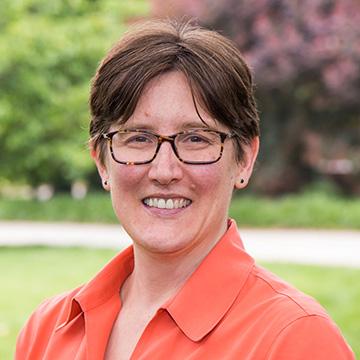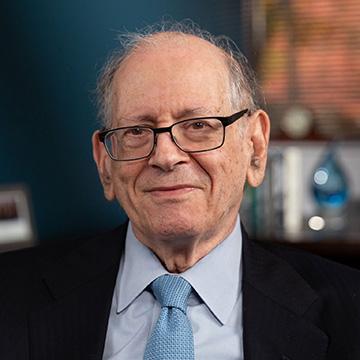
Andrea Goldsmith, Jennifer Rexford ’91, and Robert Kahn *64
Three Princeton-affiliated engineers have been selected to receive a 2024 medal from the Institute of Electrical and Electronics Engineers (IEEE), recognizing their lasting impact on technology, education and society.
The organization recognized Andrea Goldsmith, dean of engineering and applied science, for her broad contributions to engineering education; Jennifer Rexford ’91, Princeton’s provost, for developing critical computer networking systems; and Robert Kahn *64, recipient of the 2023 James Madison Medal, for inventing the internet’s founding technologies.
Goldsmith, the Arthur LeGrand Doty Professor of Electrical and Computer Engineering, received the IEEE James H. Mulligan, Jr. Education Medal. The award recognizes the importance of the educator’s contributions to the vitality, imagination and leadership of the members of the engineering profession. IEEE chose Goldsmith “for educating, mentoring, and inspiring generations of students, and for authoring pioneering textbooks in advanced digital communications.” The award consists of a gold medal, a bronze replica, a certificate and an honorarium.
“This award means so much to me, because it came from the people who have made my academic career so satisfying and joyful — my students and postdocs. Teaching and mentoring them has been the pleasure and honor of a lifetime; I have learned so much from them, been inspired by their passion, drive and creativity, and cheered each of them as they embarked on incredibly successful professional and personal journeys following their education. I am also thrilled to see the impact of my colleague Jen Rexford and our distinguished alumnus Bob Kahn highlighted through these prestigious IEEE honors. Their work exemplifies the kind of world-changing achievements produced by faculty and alumni across Princeton Engineering.”

Goldsmith helped shape today’s mobile technology, developing fundamental performance limits along with practical techniques to achieve such limits for both cellular and Wi-Fi networks. Her foundational approaches to increase the capacity, speed, reliability and range of wireless systems are integrated into all modern commercial networks. She cofounded and served as chief technology officer for Plume WiFi, which sells in-home Wi-Fi mesh networks, and Quantenna Communications, a Wi-Fi chip maker that was acquired by ON Semiconductor Corp. for around $1 billion in 2019. She currently serves on the President’s Council of Advisors on Science and Technology, the sole body of advisers from outside the federal government charged with making science, technology and innovation policy recommendations to the president and the White House.
Goldsmith has been widely recognized for her work making science and engineering more diverse and inclusive in both academic and industry settings, and as dean has pursued a bold vision for growth, innovation and inclusion that aims to increase the impact of the school on the most challenging issues facing humanity. Goldsmith founded and chairs IEEE’s Board of Directors committee on enhancing diversity and inclusion in the organization, and she led an initiative at Stanford University aimed at improving recruitment, retention and support of women and diverse faculty members. She has also established awards in the Association for Computing Machinery and the IEEE to recognize outstanding accomplishments of early-career women.

Rexford, the Gordon Y.S. Wu Professor in Engineering, was honored with the IEEE Alexander Graham Bell Medal, which recognizes exceptional contributions to communications and networking sciences and engineering. IEEE cited Rexford “for contributions to internet wide-area routing and software-defined networking.” The award consists of a bronze medal, a certificate and an honorarium.
“I am honored to receive the Bell Medal, and I am grateful for the many colleagues and students who shared my passion for improving the performance, security and stability of the infrastructure underlying the internet,” Rexford said. “As engineers, we are fortunate to work on technical problems that are at once intellectually interesting and practically relevant. Princeton offers us a wonderful environment that cherishes both the rigor and the relevance of our research ideas.”
Rexford, who graduated from Princeton in 1991, became provost in March after serving as chair of computer science for nine years. Her research focuses on computer networking, with the larger goal of making the internet worthy of society’s trust. Prior to arriving to teach at Princeton, Rexford worked as a researcher at AT&T Labs for more than eight years, creating techniques for monitoring, traffic engineering, and router configuration deployed in AT&T’s backbone networks. She is an affiliated faculty member in electrical and computer engineering, operations research and financial engineering, and the Center for Information Technology Policy. Rexford also has led an interdisciplinary data science faculty search committee responsible for hiring faculty who use machine learning and statistics as a lens for advancing scholarship in their individual disciplines.

Kahn, who is often described as a “father of the internet,” received the IEEE Medal of Honor. It is the organization’s highest award, given to an individual who has made an exceptional contribution to, or had an extraordinary career in, the IEEE fields of interest. Judges considered nominees’ substantial significance of achievement, originality, impact on society, impact on the profession, publications and patents relating to the achievement. IEEE recognized Kahn “for pioneering technical and leadership contributions in packet communication technologies and foundations of the internet.” The award includes a gold medal, a bronze replica, a certificate and an honorarium.
Kahn and computer scientist Vinton G. Cerf, who won the IEEE Medal of Honor last year, created the protocol to transmit data reliably between separate computer networks, and to do so quickly, effectively and routinely. Kahn is currently chairman, CEO and president of the Corporation for National Research Initiatives, a nonprofit organization focused on research and development of the National Information Infrastructure, referred to by some as the information superhighway. Much of Kahn’s career was spent at the U.S. Defense Advanced Research Projects Agency (DARPA) and also at a small engineering firm that worked on ARPANET (Advanced Research Projects Agency Network), an experimental computer network sponsored by DARPA. His many honors include the Presidential Medal of Freedom, the ACM Turing Award and the National Medal of Technology. He is a member of both the National Academy of Sciences and the National Academy of Engineering. Kahn, who earned a Ph.D. in electrical engineering in 1964 at Princeton, has also been recognized for his contributions to the University, including his profound impact as an adviser to the Department of Computer Science, which has helped establish the University as a leader in the field.
The honorees will receive their awards at the 2024 IEEE Honors Ceremony in Boston in May 2024.
This story originally appeared on the Princeton Engineering website.


